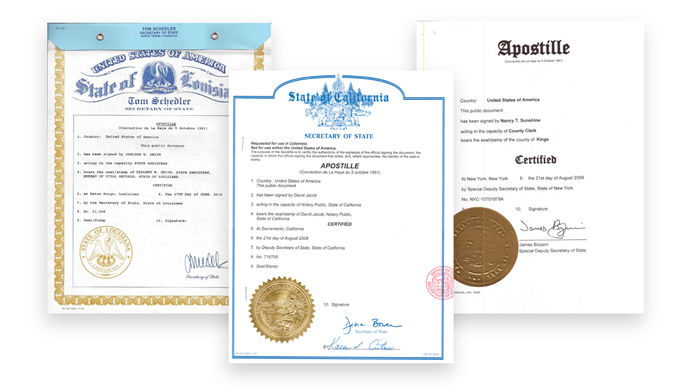Unveiling the Important Function of Apostille in Simplifying International File Validation Procedures
In the world of worldwide affairs, the validation of files holds paramount importance. Among the internet of administrative procedures and differing lawful requirements throughout various countries, the role of apostille becomes a key facilitator in simplifying the procedure. By affixing an apostille to a document, it undertakes a simplified recognition that is acknowledged across numerous nations, hence easing the worries associated with cross-border record authentication. As we look into the ins and outs of this specialized qualification, the nuances in between apostille and standard recognition techniques emerge, shedding a new viewpoint on the effectiveness and performance of this important yet often neglected procedure.
Understanding Apostille Fundamentals
In the world of document validation for worldwide usage, understanding the essential concepts of apostille verification is essential. An apostille is a specific certification that validates the authenticity of a file for use in international nations that belong to the Hague Apostille Convention. Understanding the fundamentals of apostille entails recognizing that it does not verify the material of the record but rather accredits the trademark and seal of the releasing authority. This certification simplifies the process of global file recognition by ensuring that the file will be recognized as genuine in countries that are parties to the Apostille Convention.
Apostilles are frequently provided for crucial documents such as birth certifications, marital relationship certifications, and scholastic transcripts. The essential parts of an apostille consist of the name of the nation where it was provided, the name of the person authorizing the record, the ability in which the person signed the file, the seal or stamp of the issuing authority, and the date of issuance. By recognizing these essential elements of apostille authentication, people and companies can browse the intricacies of international record recognition with confidence and performance.
Advantages of Apostille for Recognition

Furthermore, the apostille simplifies the verification procedure by providing a standard certificate that validates the credibility of the file, such as birth certifications, marital relationship licenses, notarized actions, and scholastic records. This standard format reduces the threat of rejection as a result of unfamiliarity with foreign papers, therefore improving the performance of cross-border transactions.
Moreover, the apostille aids in removing the need for multiple layers of authentication by federal government authorities, as the apostille itself indicates the file's validity. This not only accelerates the record recognition process yet likewise reduces the linked expenses and governmental hurdles, making it a practical and cost-effective remedy for services and people taking part in global activities.
Simplifying Cross-Border File Authentication
Assisting in the recognition of records throughout global boundaries, the apostille procedure acts as a streamlined and widely recognized technique for verifying different kinds of official documents. Streamlining cross-border record verification, the apostille eliminates the demand for lengthy More Help and typically difficult validation procedures normally needed when offering records in international nations. By attaching an apostille to a paper, the providing country accredits the authenticity of the file, making it readily acceptable in various other nations that become part of the Hague Apostille Convention. This standard process considerably reduces the time and initiative included in confirming the authenticity of main documents, promoting efficiency and convenience of global deals.
Additionally, the apostille system enhances the security and reliability of cross-border paper validation by supplying a transparent and globally accepted device for confirming the credibility of documents. This simplification of authentication refines not only benefits people and businesses looking for to operate globally but likewise cultivates smoother communication and cooperation in between countries by making certain the integrity of common documents.
Value of Apostille in Legalisation

Apostille makes sure that legal papers such as birth certifications, marital relationship certifications, powers of attorney, and court papers are recognized and accepted in foreign territories. This is particularly essential in legal issues such as global fosterings, immigration procedures, or company purchases that entail celebrations from various countries. The apostille procedure minimizes the administrative difficulties and taxing treatments commonly related to file legalisation, making global transactions a lot more reliable and legitimately binding. Finally, the significance of apostille in the legalisation of global documents can not be overemphasized, as it assists in smooth cross-border communications and guarantees the credibility and authenticity of lawful paperwork.
Apostille Vs. Standard Recognition Approaches
Contrasting apostille with typical recognition approaches exposes distinctive distinctions in the effectiveness and simpleness of paper verification processes for global use. Apostille, as a structured and standard approach established by the Hague Convention, uses an extra read this post here straightforward approach to validating files contrasted to conventional techniques. Traditional recognition processes usually entail several actions, including registration, qualification by federal government authorities, and consular legalisation, which can be cumbersome and taxing.
Apostille, on the other hand, simplifies this process by licensing documents with a single apostille certificate provided by a skilled authority in the country where the paper stems (Houston TX Apostille). This certification is recognized by all member countries of the Hague Convention, eliminating the need for additional embassy legalization. As an outcome, apostille dramatically lowers the moment and effort required for document validation, making it a preferred choice for individuals and organizations associated with international transactions
Final Thought
Finally, apostille plays a crucial duty in simplifying global document recognition procedures by supplying a standardized technique of authentication that is acknowledged across getting involved countries. By streamlining the legalization process, apostille gets rid of the need for several layers of recognition, minimizing time and prices linked with cross-border paper authentication. This reliable system benefits people and companies looking for to use international documents for lawful functions, guaranteeing smoother international purchases.
By affixing an apostille to a record, it goes through a streamlined recognition that is recognized across many countries, hence easing the problems linked with cross-border document authentication. Simplifying cross-border paper verification, the apostille eliminates the requirement for prolonged and usually complicated validation procedures commonly required when presenting files in international nations. By fastening an apostille to a record, the issuing country licenses the credibility of the file, making it easily acceptable in other nations that are part of the Hague Apostille Convention. By attaching an apostille to a record, the releasing nation licenses the credibility of the trademark, site link seal, or stamp on the record, making it legitimate for usage in an additional participant nation of the Hague Apostille Convention without the demand for more legalisation.
